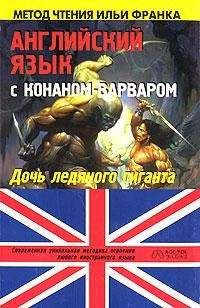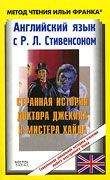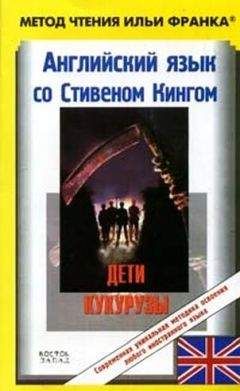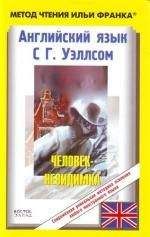grew [ɡru: ], weight [weɪt], mouth [mauƟ]
While the sentry stood in the main doorway with his back to his comrades, a grim shape formed among the snoring band of slavers. It grew slowly out of wavering clouds of insubstantial shadows. The compound creature that gradually took shape was made up of the vital force of thousands of dead beings. It became a ghastly form — a huge bulk that sprouted countless malformed limbs and appendages. A dozen squat legs supported its monstrous weight. From its top, like grisly fruit, sprouted scores of heads: some lifelike, with shaggy hair and brows; others mere lumps in which eyes, ears, mouths, and nostrils were arranged at random.
The sight of the hundred-headed monster in that dimly firelit hall was enough to freeze the blood of the stoutest with terror (вида стоглавого монстра в этом неясно освещенном костром зале было достаточно, /чтобы/ заморозить = застыла кровь самых отважных — от ужаса). Conan felt his nape hairs rise and his skin crawl with revulsion as he stared down upon the scene (Конан почувствовал, как встали дыбом волосы на затылке, а по его коже побежали от отвращения мурашки: «его затылочные волосы подниматься, а его кожа побежать мурашками с отвращением», когда он уставился вниз на зрелище; to feel — чувствовать; to crawl — кишеть; пробегать (о мурашках)).
monster [ˈmɔnstə], terror [ˈterə], crawl [krɔ: l]
The sight of the hundred-headed monster in that dimly firelit hall was enough to freeze the blood of the stoutest with terror. Conan felt his nape hairs rise and his skin crawl with revulsion as he stared down upon the scene.
The thing lurched across the floor (существо пошло, пошатываясь, по полу; to lurch — идти шатаясь, пошатываться). Leaning unsteadily down, it clutched one of the Stygians with half a dozen grasping claws (наклонившись неустойчиво вниз, оно схватило одного из стигийцев полудюжиной цепких когтей). As the man awoke with a scream, the nightmare Thing tore its victim apart, spattering his sleeping comrades with gory, dripping fragments of the man (когда мужчина проснулся с воплем, кошмарное Существо разорвало свою жертву на части, забрызгивая его спящих товарищей окровавленными сочащимися кусками; to tear apart — разрывать на куски / на части).
lurch [lə: tʃ], one [wʌn], scream [skri: m]
The thing lurched across the floor. Leaning unsteadily down, it clutched one of the Stygians with half a dozen grasping claws. As the man awoke with a scream, the nightmare Thing tore its victim apart, spattering his sleeping comrades with gory, dripping fragments of the man.
7. Flight from Nightmare
(Бегство от кошмара)
In an instant, the Stygians were on their feet (вмиг стигийцы были на ногах). Hard-bitten ravagers though they were, the sight was frightful enough to wring yells of terror from some (хотя они были стойкими налетчиками, зрелище было достаточно ужасающим, чтобы исторгнуть вопли ужаса из некоторых; to wring — выжимать). Wheeling at the first scream, the sentry rushed back into the hall to hack at the monster with his sword (обернувшись при первом крике, часовой бросился назад в зал, чтобы разрубить чудище своим мечом). Bellowing commands, the leader snatched up the nearest weapon and fell to (выкрикивая команды, предводитель выхватил ближайшее оружие и бросился в бой; to fall to — энергично приниматься за (что-л.), начинать делать (что-л.); набрасываться на (что-л.)). The rest, although unarmored, disheveled, and confused (остальные, хотя и без доспехов: «недоспешные», растрепанные и сбитые с толку / растерявшиеся; armor — кольчуга, латы, шлем, доспехи), seized sword and spear to defend themselves against the shape that shambled and slew among them (схватили меч и копье, /чтобы/ защититься от формы = фигуры, которая шаталась и убивала среди них; to slay — убивать, уничтожать).
feet [fi: t], weapon [ˈwepən], slew [slu:]
In an instant, the Stygians were on their feet. Hardbitten ravagers though they were, the sight was frightful enough to wring yells of terror from some. Wheeling at the first scream, the sentry rushed back into the hall to hack at the monster with his sword. Bellowing commands, the leader snatched up the nearest weapon and fell to. The rest, although unarmored, disheveled, and confused, seized sword and spear to defend themselves against the shape that shambled and slew among them.
Swords hacked into misshapen thighs; spears plunged into the swollen, swaying belly (мечи врубались в бесформенные бедра, копья погружались в раздутое, колеблющееся брюхо). Clutching hands and arms were hacked away to thud, jerking and grasping, to the floor (хватающие кисти и руки = руки отрубались: «были отрублены», /чтобы/ упасть с глухим стуком, дергаясь и цепляясь, на пол = хватающие руки рубили, и они, дергаясь и цепляясь, падали с глухим стуком на пол). But, seeming to feel no pain, the monster snatched up man after man (однако, казалось, не чувствуя никакой боли, чудовище хватало человека за человеком). Some Stygians had their heads twisted off by strangling hands (некоторые стигийцы имели свои головы открученными давящими руками = у некоторых стигийцев сжимающие руки открутили головы; to have something done — to have + дополнение + причастие прошедшего времени — сделать что-то чужими руками, то есть действие, которое выполняется кем-либо по просьбе подлежащего).[25] Others were seized by the feet and battered to gory remnants against the pillars (другие были схвачены за ноги и разбиты на кровавые останки о колонны).
thigh [Ɵaɪ], thud [Ɵʌd], pain [peɪn]
Swords hacked into misshapen thighs; spears plunged into the swollen, swaying belly. Clutching hands and arms were hacked away to thud, jerking and grasping, to the floor. But, seeming to feel no pain, the monster snatched up man after man. Some Stygians had their heads twisted off by strangling hands. Others were seized by the feet and battered to gory remnants against the pillars.
As the Cimmerian watched from above, a dozen Stygians were battered or torn to death (пока киммериец наблюдал сверху, дюжина стигийцев была избита или растерзана до смерти). The ghastly wounds inflicted on the monster by the weapons of the Stygians instantly closed up and healed (отвратительные раны, нанесенные монстру оружием стигийцев мгновенно затягивались и заживали). Severed heads and arms were replaced by new members, which sprouted from the bulbous body (отрубленные головы и руки были заменены новыми конечностями, которые вырастали из выпуклого тела).
torn [tɔ: n], wound [wʋnd], heal [hi: l]
As the Cimmerian watched from above, a dozen Stygians were battered or torn to death. The ghastly wounds inflicted on the monster by the weapons of the Stygians instantly closed up and healed. Severed heads and arms were replaced by new members, which sprouted from the bulbous body.
Seeing that the Stygians had no chance against the monster, Conan resolved to take his leave while the Thing was still occupied with the slavers and before it turned its attention to him (видя, что стигийцы /не/ имели = /не/ имеют никаких шансов против монстра, Конан решил уйти, пока Тварь была еще занята с работорговцами, и пока она не обратила своего внимания на него; to take leave — уйти, прощаться). Thinking it unwise to enter the hall, he sought a more direct exit (считая /это/ неразумным входить в зал, он поискал более прямой выход; to seek — искать). He climbed out through a window (он выбрался наружу через окно). This let on to a roof terrace of broken tiles (это = оно выпускало = выходило на террасу крыши из поломанной черепицы), where a false step could drop him through a gap in the pavement to ground level (где ложный шаг мог уронить его через щель в покрытии на первый уровень = этаж).
leave [li: v], enter [ˈentə], sought [sɔ: t]
Seeing that the Stygians had no chance against the monster, Conan resolved to take his leave while the Thing was still occupied with the slavers and before it turned its attention to him. Thinking it unwise to enter the hall, he sought a more direct exit. He climbed out through a window. This let on to a roof terrace of broken tiles, where a false step could drop him through a gap in the pavement to ground level.
The rain had slackened to a drizzle (дождь уменьшился до измороси). The moon, now nearly overhead, showed intermittent beams again (луна, теперь почти над головой, показывала периодические лучи опять = снова периодически посылала лучи). Looking down from the parapet that bounded the terrace, Conan found a place where the exterior carvings, together with climbing vines, provided means of descent (глядя вниз с парапета, который ограничивал террасу, Конан нашело место, где внешний резной орнамент вместе с вьющимися лозами давал: «предоставлял» возможность /для/ спуска). With the lithe grace of an ape, he lowered himself hand over hand down the weirdly carven facade (с гибкой грацией обезьяны он спустил себя = спустился проворно вниз по причудливо высеченному фасаду; hand over hand — быстро, проворно: «рука поверх руки»).
drizzle [drzl], beam [bi: m], facade [fəˈsɑ: d]
The rain had slackened to a drizzle. The moon, now nearly overhead, showed intermittent beams again. Looking down from the parapet that bounded the terrace, Conan found a place where the exterior carvings., together with climbing vines, provided means of descent. With the lithe grace of an ape, he lowered himself hand over hand down the weirdly carven facade.
Now the moon glazed out in full glory (теперь луна блистала во всей славе / красоте), lighting the courtyard below where the Stygians' horses stood tethered (освещая внутренний двор внизу, где лошади стигийцев стояли привязанными; to tether — привязать /пасущееся животное/), moving and whinnying uneasily at the sounds of mortal combat that came from the great hall (двигаясь = переступая и ржа беспокойно = издавая беспокойное ржание при звуках смертельного боя, которые доносились из большого зала). Over the roar of battle sounded screams of agony as man after man was torn limb from limb (над шумом битвы = заглушая шум битвы звучали вопли агонии, когда человеку за человеком отрывали: «был отрываем» конечность за конечностью).
glory [ˈɡlɔ: rɪ], below [bɪˈləu], agony [ˈæɡənɪ]
Now the moon glazed out in full glory, lighting the courtyard below where the Stygians' horses stood tethered, moving and whinnying uneasily at the sounds of mortal combat that came from the great hall. Over the roar of battle sounded screams of agony as man after man was torn limb from limb.
Conan dropped, landing lightly on the earth of the courtyard (Конан прыгнул вниз, легко приземлившись на землю внутреннего двора). He sprinted for the great black mare that had belonged to the leader of the slavers (он бросился к большой черной кобыле, которая принадлежала предводителю работорговцев). He would have liked to linger to loot the bodies, for he needed their armor and other supplies (он бы хотел задержаться, чтобы ограбить тела, так как он нуждался в их доспехах и других припасах). The mail shirt he had worn as Belit's piratical partner had long since succumbed to wear and rust (кольчуга, /которую/ он носил, как пират, партнер Белит, уже давно поддалась износу и рже), and his flight from Bamula had been too hasty to allow him to equip himself more completely (а его побег из Бамулы был слишком поспешен, /чтобы/ позволить ему экипироваться более основательно). But no force on earth could have drawn him into that hall (но никакая сила на земле /не/ могла бы затащить его в тот зал), where a horror of living death still stalked and slew (где ужас живой смерти все еще вышагивал и убивал).





